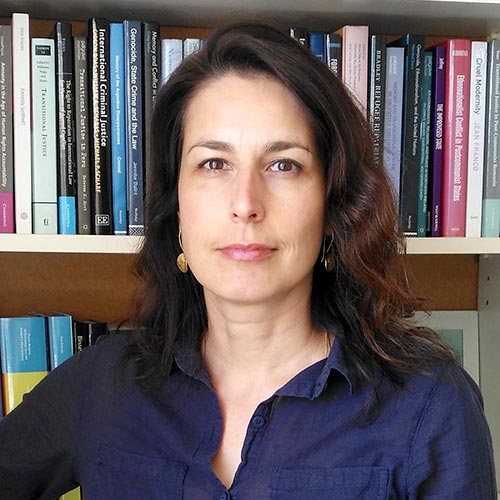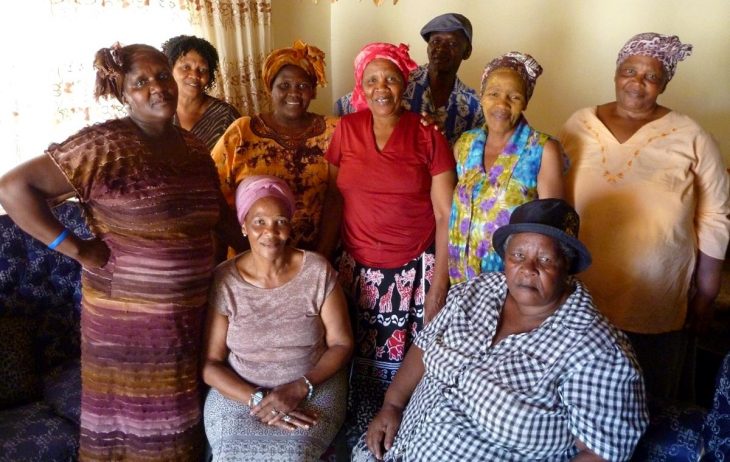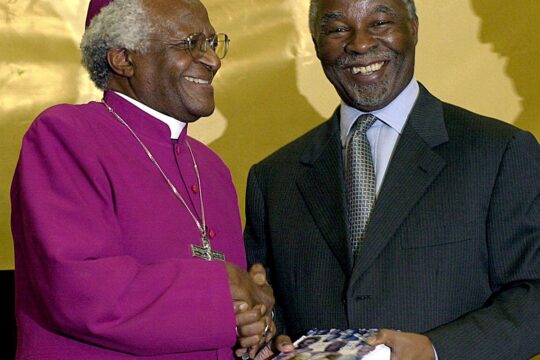“We forgot the struggle continues. We thought that we had democracy once Mandela was free, but there was no democracy, and it is far from existing because the poor are still poor today and will continue being poor.”—Nomawethu C., apartheid survivor.
Despite its lauded political transition in 1994, South Africa remains one of the most unequal countries in the world. Members of Khulumani Support Group, the national social movement for survivors of apartheid violations, argue that democracy cannot be fully realized until the country addresses its inequality. Connecting activism for redress for past abuses with activism for social change in the present, survivors model an inclusive and transformative approach to dealing with the past that goes well beyond current transitional justice practice in the country. This approach, which has not received sufficient attention to date, seeks to address the socioeconomic oppression that underpinned apartheid and the racialized marginalization of the post-apartheid period. Survivors demonstrate the need for transitional justice efforts that acknowledge the long-term nature of transition, continually engage with issues of transition as they emerge over time, and respond to the needs and demands of those most affected by them.
The evolution of apartheid survivor activism
For the past five years, I collaborated on participatory action research with Khulumani members in Western Cape Province. We looked at apartheid survivors’ understandings of inequality and violence in the context of South Africa’s transition. Our study shows that, since the early 2000s, the movement has increasingly focused on socioeconomic issues, noting the continuities between the colonial and apartheid past and the democratic present. In 2010, Khulumani adopted “socioeconomic transformation” as a strategic focus. Members in provincial branches across the country have established community-based income-generation projects and social enterprises, engaged in protests and advocacy regarding access to clean water and sanitation, and offered local trainings in subjects ranging from literacy to information technology. They have analyzed socioeconomic challenges in partnership with young people through citizen journalism, youth dialogues, school workshops, and the performing arts.
Despite these developments, the literature on apartheid survivors and Khulumani as a movement continues to focus on their activism concerning mainstream transitional justice issues as articulated by the South African Truth and Reconciliation Commission (TRC, 1996–2002). These center on reparations, prosecutions, truth recovery, and institutional reforms relating to violations of civil-political rights and bodily integrity committed under apartheid. In so doing, the literature tends to restrict Khulumani members to their positionality as ‘victim-survivors’ of events in the past, emphasizing how they relate to their pain and victimhood, to other survivors, and to dominant transitional justice and human rights norms and institutions. While this positionality is key to Khulumani’s activism, the movement’s aims have evolved as the South African context has changed. While members continue to engage with mainstream transitional justice issues, they have expanded their activism in response to the lived experiences of members living in marginalized communities, especially older women, who make up the majority of the membership and are disproportionately affected by socioeconomic exclusion.
Identifying inequality as an issue of transition
The Khulumani members we worked with say that their households continue to be subject to spatial apartheid despite democratization. Most live far from economic centers and face restricted access to information, quality education, and skill-building programs, as well as employment opportunities and social networks tapped into mainstream economic life. Inadequate social facilities in their neighborhoods do not help address these consequences of apartheid, while the availability of land for subsistence farming is quickly shrinking. Moreover, survivors argue that economic liberalization, which accelerated South Africa’s shift away from labor-intensive industries post-apartheid, has resulted in economic policies that undermine self-sufficiency and promote wage labor at the same time that they inhibit access to wage labor by privileging educated and skilled workers in capital-intensive industries. Despite the promises of transition, these developments—among others that emerge in the study—have reinforced racialized inequality and the intergenerational transmission of poverty in Khulumani families.
Khulumani members identify inequality as an issue of transition linked to failures of democratization. In working toward a just transition, they advocate for people-driven transformation through collaboration, knowledge exchange, and mutual training. They highlight the value of interventions that build on community-based knowledge, tactics, and relationships, which are often formidable given that they have been tested by local challenges. While privileging the experience and knowledge of Khulumani members, they also stress the need for engagement and solidarity with broader communities of marginalized South Africans from different backgrounds and generations in dealing with apartheid legacies and contemporary problems. Whether the interventions are small- or large-scale, survivors recommend that they be co-designed with those most affected, in collaboration with government and other stakeholders. In this, they both model and call for participatory governance.
Going beyond the Truth and Reconciliation Commission
Importantly, these Khulumani members do not view the TRC as the only or even the main mechanism that could have made a just transition possible in South Africa. They call for ongoing and continual engagement with issues of transition, in the form of accountability, reparations, truth recovery, and institutional reform via mainstream transitional justice measures, and in the form of socioeconomic transformation via participatory democracy, redistributive measures, and inclusive economic development. Instead of making a distinction between these two forms of engagement, they indicate that both are necessary. While building on the work of the Commission, survivors go beyond it to adopt broad strategies for dealing with the past. They convey an ambivalent attitude toward the state, asserting that it has the power and obligation to address the shortcomings of its transitional arrangements in collaboration with those most affected by them, while also taking a practical approach in looking to community-based interventions and partnerships with other stakeholders for opportunities for collective action.
Today, civil society efforts around transitional justice in South Africa do not reflect the approach articulated by Khulumani members. Our research indicates that these efforts tend to portray the TRC not as one of many measures for addressing past abuses but as the transitional justice mechanism in the country, into which other efforts feed. Taking a cue from the TRC, they focus on mainstream transitional justice issues related to civil-political rights violations, and continue to side-line socioeconomic abuses and inequality. They also focus almost exclusively on the state as the driver of transitional justice, ignoring other stakeholders working on dealing with the past. These are strategic choices that acknowledge the democratic government’s resistance to mainstream transitional justice and maintain the TRC’s recommendations as a concrete starting point for further activism. Yet, they serve to constrain imaginings of what transitional justice could mean.
Our research with Khulumani members suggests an updated and expanded vision of transitional justice in South Africa. Like elsewhere on the continent, the design and implementation of transitional justice measures in the country has been dominated by state actors and a small set of formal human rights organizations. A more inclusive and participatory approach that recognizes a wider range of civil society initiatives as transitional justice would bring a different set of actors—such as student groups, women’s groups, social movements, faith-based organizations, and other collectives, including successors of those that contributed to the liberation struggle—into agenda setting and strategy development. It would also highlight that transitional justice is both backward- and forward-facing, bringing the socioeconomic to the forefront along with the civil-political and linking redress more explicitly to social transformation. Given that South Africa is considered a model of transitional justice, rethinking measures from the perspective of apartheid survivors’ continuing activism presents a new opportunity for innovation, much like the TRC did in the 1990s.
The writing of this piece was supported by Heinrich Böll Foundation Southern Africa. The author was a participant in Robert Bosch Stiftung’s 2019 Berlin Seminar: Truth, Justice & Remembrance.
 JASMINA BRANKOVIC
JASMINA BRANKOVIC
Jasmina Brankovic is a senior researcher with the Centre for the Study of Violence and Reconciliation, South Africa, and associate editor of the International Journal of Transitional Justice. She is co-author of Violence, Inequality and Transformation: Apartheid Survivors on South Africa’s Ongoing Transition (2020) and The Global Climate Regime and Transitional Justice (2018) and co-editor of Advocating Transitional Justice in Africa: The Role of Civil Society (2018).






